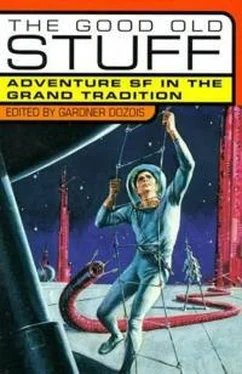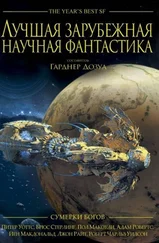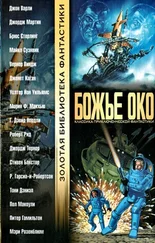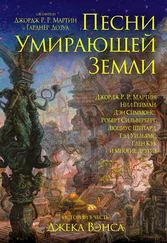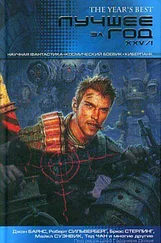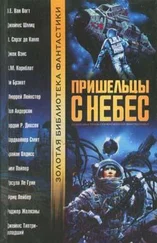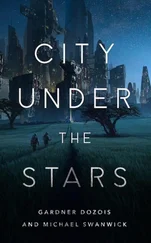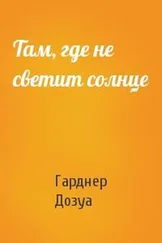Гарднер Дозуа - The Good Old Stuff
Здесь есть возможность читать онлайн «Гарднер Дозуа - The Good Old Stuff» весь текст электронной книги совершенно бесплатно (целиком полную версию без сокращений). В некоторых случаях можно слушать аудио, скачать через торрент в формате fb2 и присутствует краткое содержание. Год выпуска: 1998, ISBN: 1998, Издательство: St. Martin's Griffin, Жанр: Фантастика и фэнтези, на английском языке. Описание произведения, (предисловие) а так же отзывы посетителей доступны на портале библиотеки ЛибКат.
- Название:The Good Old Stuff
- Автор:
- Издательство:St. Martin's Griffin
- Жанр:
- Год:1998
- ISBN:0-312-19275-4
- Рейтинг книги:3 / 5. Голосов: 1
-
Избранное:Добавить в избранное
- Отзывы:
-
Ваша оценка:
- 60
- 1
- 2
- 3
- 4
- 5
The Good Old Stuff: краткое содержание, описание и аннотация
Предлагаем к чтению аннотацию, описание, краткое содержание или предисловие (зависит от того, что написал сам автор книги «The Good Old Stuff»). Если вы не нашли необходимую информацию о книге — напишите в комментариях, мы постараемся отыскать её.
The Good Old Stuff — читать онлайн бесплатно полную книгу (весь текст) целиком
Ниже представлен текст книги, разбитый по страницам. Система сохранения места последней прочитанной страницы, позволяет с удобством читать онлайн бесплатно книгу «The Good Old Stuff», без необходимости каждый раз заново искать на чём Вы остановились. Поставьте закладку, и сможете в любой момент перейти на страницу, на которой закончили чтение.
Интервал:
Закладка:
And had I not been trapped by my need for water and supplies I would have run away right out of the valley. But I had no place to run to and so I stayed and sweated and gagged on the acrid taste of fear.
What were these creatures that made no sound?
Ghosts—images—dreams?
The human and the non-human, the ancient, the proud, the lost and forgotten who were so insanely present—did they have some subtle form of life I knew nothing about? Could they see me as I saw them? Did they have thought and volition of their own?
It was the solidity of them, the intense and perfectly prosaic business in which they were engaged. Ghosts do not barter. They do not hang jeweled necklets upon their women nor argue about the price of a studded harness.
The solidity and the silence—that was the worst of it. If there had been one small living sound ...
A dying city, Conn had said. The days are running out. What if they had run out? What if I were here in this massive pile of stone with all its countless rooms and streets and galleries and hidden ways, alone with the lights and the soundless phantoms?
Pure terror is a nasty thing. I had it then.
I began to move, very cautiously, along the wall. I wanted to get away from that market-place. One of the hairless gliding non-humans was bartering for a female slave. The girl was shrieking. I could see every drawn muscle in her face, the spasmodic working of her throat.
Not the faintest sound came out.
I found a street that paralleled the wall. I went along it, catching glimpses of people—human people—inside the lighted buildings. Now and then men passed me and I hid from them. There was still no sound.
I was careful how I set my feet. Somehow I had the idea that if I made a noise something terrible would happen.
A group of merchants came toward me. I stepped back into an archway and suddenly from behind me there came three spangled women of the serais. I was caught.
I did not want those silent laughing women to touch me. I leaped back toward the street and the merchants paused, turning their heads. I thought that they had seen me. I hesitated and the women came on.
Their painted eyes shone and their red lips glistened. The ornaments on their bodies flashed. They walked straight into me.
I made noise then, all I had in my lungs. And the women passed through me. They spoke to the merchants and the merchants laughed. They went off together down the street. They hadn’t seen me. They hadn’t heard me.
And when I got in their way I was no more than a shadow. They passed through me.
I sat down on the stones of the street and tried to think. I sat for a long time. Men and women walked through me as through the empty air.
I sought to remember any sudden pain, as of an arrow in the back that might have killed me between two seconds, so that I hadn’t known about it. It seemed more likely that I should be the ghost than the other way around.
I couldn’t remember. My body felt solid to my hands as did the stones I sat on. They were cold and finally the cold got me up and sent me on again.
There was no reason to hide any more. I walked down the middle of the street and I got used to not turning aside.
I came to another wall, running at right angles back into the city. I followed that and it curved around gradually until I found myself back at the market-place, at the inner end of it. There was a gateway, with the main part of the city beyond it, and the wall continued. The non-humans passed back and forth through the gate but no human did except the slaves. I realized then that all this section was a ghetto for the humans who came to Shandakor with the caravans.
I remembered how Conn had felt about me. And I wondered—granted that I were still alive and that some of the people of Shandakor were still on the same plane as myself—how they would feel about me if I trespassed in their city.
There was a fountain in the market-place. The water sprang up sparkling in the colored light and filled a wide basin of carved stone.
Men and women were drinking from it. I went to the fountain but when I put my hands in it all I felt was a dry basin filled with dust. I lifted my hands and let the dust trickle from them. I could see it clearly. But I saw the water too. A child leaned over and splashed it and it wetted the garments of the people. They struck the child and he cried and there was no sound.
I went on through the gate that was forbidden to the human race.
The avenues were wide. There were trees and flowers, wide parks and garden villas, great buildings as graceful as they were tall. A wise proud city, ancient in culture but not decayed, as beautiful as Athens but rich and strange, with a touch of the alien in every line of it.
Can you think what it was like to walk in that city, among the silent throngs that were not human—to see the glory of it, that was not human either?
The towers of jade and cinnabar, the golden minarets, the lights and the colored silks, the enjoyment and the strength. And the people of Shandakor! No matter how far their souls have gone they will never forgive me.
How long I wandered I don’t know. I had almost lost my fear in wonder at what I saw. And then, all at once in that deathly stillness, I heard a sound—the quick, soft scuffing of sandaled feet.
I stopped where I was, in the middle of a plaza. The tall silver-crested ones drank wine under canopies of dusky blooms and in the center a score of winged girls as lovely as swans danced a slow strange measure that was more like flight than dancing. I looked all around. There were many people.
How could you tell which one had made a noise?
Silence.
I turned and ran across the marble paving. I ran hard and then suddenly I stopped again, listening. Scuff-scuff—no more than a whisper, very light and swift. I spun around but it was gone. The soundless people walked and the dancers wove and shifted, spreading their white wings.
Someone was watching me. Some one of those indifferent shadows was not a shadow.
I went on. Wide streets led off from the plaza. I took one of them.
I tried the trick of shifting pace and two or three times I caught the echo of other steps than mine. Once I knew it was deliberate.
Whoever followed me slipped silently among the noiseless crowd, blending with them, protected by them, only making a show of footsteps now and then to goad me.
I spoke to that mocking presence. I talked to it and listened to my own voice ringing hollow from the walls. The groups of people ebbed and flowed around me and there was no answer.
I tried making sudden leaps here and there among the passersby with my arms outspread. But all I caught was empty air. I wanted a place to hide and there was none.
The street was long. I went its length and the someone followed me.
There were many buildings, all lighted and populous and deathly still.
I thought of trying to hide in the buildings but I could not bear to be closed in between walls with those people who were not people.
I came into a great circle, where a number of avenues met around the very tall tower I had seen with the revolving globe on top of it. I hesitated, not knowing which way to go. Someone was sobbing and I realized that it was myself, laboring to breathe. Sweat ran into the corners of my mouth and it was cold, and bitter.
A pebble dropped at my feet with a brittle click.
I bolted out across the square. Four or five times, without reason, like a rabbit caught in the open, I changed course and fetched up with my back against an ornamental pillar. From somewhere there came a sound of laughter.
I began to yell. I don’t know what I said. Finally I stopped and there was only the silence and the passing throngs, who did not see nor hear me. And now it seemed to me that the silence was full of whispers just below the threshold of hearing.
Читать дальшеИнтервал:
Закладка:
Похожие книги на «The Good Old Stuff»
Представляем Вашему вниманию похожие книги на «The Good Old Stuff» списком для выбора. Мы отобрали схожую по названию и смыслу литературу в надежде предоставить читателям больше вариантов отыскать новые, интересные, ещё непрочитанные произведения.
Обсуждение, отзывы о книге «The Good Old Stuff» и просто собственные мнения читателей. Оставьте ваши комментарии, напишите, что Вы думаете о произведении, его смысле или главных героях. Укажите что конкретно понравилось, а что нет, и почему Вы так считаете.
